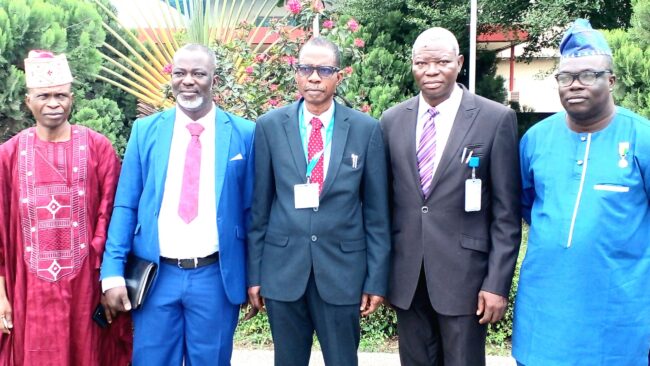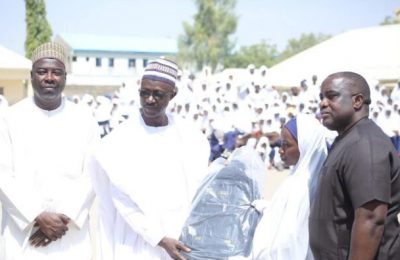
A Professor of Microbiology and Biotechnology at the Edo State University (EDSU), Uzairue, Charles Adetunji, has stressed the need for Nigeria to strengthen the study of biotechnology and research activities in the nation’s universities.
He says doing so would help the country to maximise the huge potential inherent in the biotechnology subsector to address many societal challenges such as food and medical insecurity and environmental pollution, among others.

Adetunji, who is the director of research and innovation at EDSU, shared this thought and perspective in Lagos at a press conferenceopening session of the ongoing two-day annual international conference on new discoveries in biotechnology.
The conference held at Trinity University, Yaba, Lagos, has a theme of “Biotechnology as a catalyst for sustainable economic development: Achieving SDGs through innovation and collaboration.”
According to Don, news things are evolving, especially in biotechnology-related fields, on a daily basis, and Nigeria and other African countries cannot afford to take backstage in maximising the potential in biotechnology to address pressing socio-economic crises.
He said that was why the conference was designed as a solution-driven platform for societal challenges in diverse areas of life at community, national, and global levels.
Adetunji, who is the convener of the conference, noted that many scholars, researchers, inventors, and industry players from Nigeria and overseas would be on hand to present papers and showcase their recent discoveries in specific areas of science at the conference.
He pointed out that some of the UN’s Sustainable Development Goals (SDGs) would have been easily achieved, particularly in Africa, if some of the discoveries and innovations of researchers were taken seriously by the government.
He said it was not enough to carry out research and for such efforts to end on the shelves, but for them to translate to economic use is the essence; hence, the conference would come up with a communiqué to be presented to the policymakers for utilisation.
“So, the overriding objective of the conference is to see that we exploit the potential in biotechnology to improve our agricultural productivity, food, and health security, as well as the friendly environment in Nigeria and at the global level,” he stressed.
He added that the conference would also give opportunity for collaboration and networking among participants.
Speaking earlier, the vice chancellor of Trinity University, Prof. Clement Kolawole, expressed strong optimism about the role biotechnology can play in solving many problems that people grapple with not only in Nigeria but globally.
He said the world is changing, and so is the knowledge, and therefore the conference would expose how innovations in the biotechnology field can help reduce poverty, inequality, and climate change burdens that people are confronted with, at least to the barest minimum.
He commended the convener of the conference for giving Trinity University the opportunity to host the programme.
According to him, even though Trinity University is young, the impact of the institution in teaching, research, and community engagement within its six-year operation is huge and bigger than most universities that have been in existence for decades.
“We will ensure we won’t relent in our mandates,” he added.
In his own remarks at the event, the former vice chancellor of Precious Cornerstone University, Ibadan, Prof. Julius Oloke, acknowledged the importance of the conference, particularly to Nigeria.
He said biotechnology can help drive meaningful progress in diverse sectors of the economy, especially agriculture, health, and the environment.
He noted that his university played host to the last edition of the conference with the expectation for this year’s edition to end better.
ALSO READ THESE TOP STORIES FROM NIGERIAN TRIBUNE








